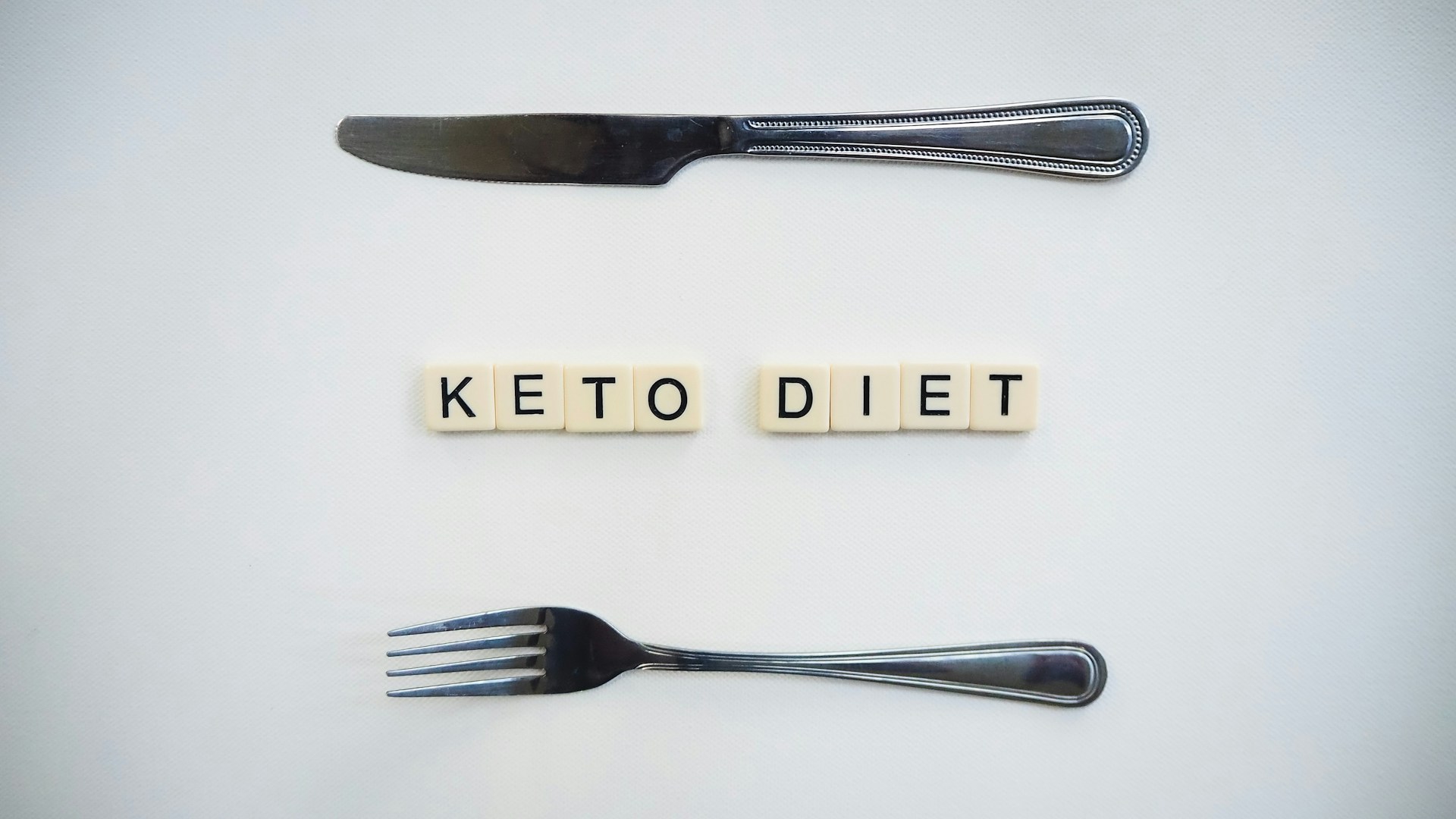A ketogenic diet (or keto diet for short) is a low-carb, high-fat diet that has many benefits for certain groups. Many studies on the keto diet have shown that the keto diet causes weight loss and improves health in some people.
The keto-genetic diet can help prevent some diseases such as diabetes, cancer, epilepsy and Alzheimer’s.
In the following, we will review a detailed guide on how to make a ketogenic diet.
What is a ketogenic diet?
The principles of the ketogenic diet are based on a very low-carb, high-fat diet, which is very similar to the Atkins diet and the low-carb diet.
The keto diet involves a sharp reduction in carbohydrate intake and its replacement by fat, under which the body undergoes a different metabolic state than normal, called ketosis.
When the state of ketosis for the body to burn fat much more efficiently find, to power the brain and fat in the liver to ketone bodies are converted for use as an energy source in the brain are used.
ketogenic diet can reduce high blood sugar and insulin in the body, reducing blood glucose and increase ketone bodies can be useful in treating certain diseases.
The keto diet is a low-carbohydrate, high-fat diet that lowers blood sugar and blood insulin levels, thereby altering the body’s metabolism from carbohydrates to fats and ketone bodies.
Types of ketogenic diets
The ketogenic diet has different models that include the following:
Standard Ketogenic Diet (SKD):
This diet is very low in carbohydrates, moderate in protein and very high in fat. A standard ketogenic diet usually contains 75% fat, 20% protein and only 5% carbohydrates.
Targeted Ketogenic Diet (TKD):
This diet allows you to add carbohydrates to your diet in some cases, such as during exercise.
Periodic Ketogenic Diet (CKD):
This diet includes high-carbohydrate and high-fat diets, for example, a 5-day keto diet and a 2-day high-carbohydrate diet.
High-protein ketogenic diet: This diet is similar to the standard ketogenic diet, except that more protein is used in the diet, the proportions of macronutrients in the ketogenic diet are 60% fat, 35% protein and 5% carbohydrates.
However, only standard, high-protein ketogenic diets have been extensively studied. Rotational and targeted ketogenic diets are more commonly used by athletes and are slightly more advanced than standard ketogenic diets.
The information presented in this article is mostly about standard ketogenic diets, although many of the principles used in all types of ketogenic diets are very similar.
Does Keto Slimming Diet Help You Lose Weight?
A ketogenic diet is an effective solution for weight loss and a therapeutic strategy for the treatment of some diseases such as epilepsy.
Research shows that ketogenic diets are more effective for weight loss than many of the low-fat diets recommended for weight loss. That the ketogenic diet attention of most people’s attention is the fact that you can without a calorie diet to calculate the amount of your food intake to limit the weight you.
based on the studies that were performed were The keto diet causes you to lose 2 to 3 times more weight than when you eat a low-fat, low-calorie diet
Reasons for the regime Kato in the low-fat diet and limit calories to lose weight is a superior expression, such as a protein, elevated levels of ketone bodies in the body, lowering blood sugar and increases the sensitivity of cells to insulin.
Benefits of Keto Diet for Diabetics and Pre-Diabetics
Diabetes is characterized by impaired metabolism, high blood sugar, and impaired insulin function
Diet ketogenic to lose unwanted body fat you directly with an increased risk of type 2 diabetes, prediabetes and metabolic syndrome is associated helps.
in one of the studies about the Keto and Diabetes Diet, The ketogenic diet was found to increase cell sensitivity to insulin by up to 75%.
Another study of 21 diabetics found that 7 of these individuals stopped taking the ketogenic diet completely.
Comparing the rate of weight loss in people who receive a ketogenic diet and people who use a high-carbohydrate diet shows the effect of weight loss in reducing the severity of diabetes, and a ketogenic diet causes more weight loss than a high-carbohydrate diet.
Also, about 95% of people on a ketogenic diet were able to reduce or discontinue their medication, compared with 62% of those on a high-carbohydrate diet who were able to reduce their medication. Reduce significantly more.
Keto diet and its effect on other diseases
The ketogenic diet was initially used to treat neurological conditions such as epilepsy and was an effective treatment for people with refractory epilepsy.
Subsequent studies on the keto diet showed that the benefits of the ketogenic diet could be used to treat some other diseases. Diseases that have been studied for the effect of the ketogenic diet include the following:
Heart disease: the ketogenic diet may be risk factors for cardiovascular disease such as cholesterol, HDL, blood pressure and blood sugar better.
Cancer: Now the regime of ketoconazole for the treatment of certain cancers and slow the growth of tumors. Cancer is used.
Alzheimer’s: Ketogenic diet reduces the symptoms of Alzheimer’s and slows the growth of Alzheimer’s.
Epilepsy: Various studies have shown that the use of a ketogenic diet causes a significant reduction in seizures in children with epilepsy.
Parkinson’s: A study on the keto diet and Parkinson’s disease showed that the keto diet can reduce the symptoms of Parkinson’s disease.
Polycystic ovary syndrome: The keto diet can lower blood sugar and blood insulin levels, which is one of the main causes of the ovarian syndrome. polycystic and result in improved disease.
Traumatic brain injury: According to an animal study showed that the regime keto can decrease the damage caused by brain damage and speed recovery of the brain after a brain injury help.
Acne: Low levels of insulin, reduced sugar intake and processed foods can help reduce the incidence of acne in people.
However, research in some of these areas is limited and requires further study and experimentation.
Foods You Should Not Eat on a Ketogenic Diet!
In the keto diet, any food that is high in carbohydrates should not be consumed. In the following, we read the list of foods that should be limited and eliminated:
Foods that have sugar: soft drinks, juices, smoothies, cakes, ice cream, chocolate, etc.
Cereals and starches: cereals, pasta, wheat and barley bread, pasta, etc.
Fruits: All types of fruits except Some types of berries such as strawberries,
beans and legumes: chickpeas, beans, legumes, lentils, etc.
Starchy vegetables and root vegetables: such as potatoes, carrots, sweet potatoes, beans, etc.
Low-fat products and Diet: These products are processed a lot and usually have high carbohydrates.
Some condiments or sauces: These ingredients usually contain sugar and trans fats.
Harmful fats: such as solid vegetable fats (vegetable oils) and mayonnaise
alcohol: Due to the high carbohydrate content of alcoholic beverages can get your body out of ketosis.
Sugar-free diet foods: In addition to being processed a lot, these foods usually contain a lot of alcoholic sugar, which can affect the level of ketone bodies in the body.
Avoid foods that are high in carbohydrates such as whole grains, legumes, sugar, potatoes, rice, candies, sweets and chocolates, juices and most fruits.
Allowed foods in the ketogenic diet
Most foods on a ketogenic diet should include the following:
- Meat: Types of meat including red meat, steak, ham, sausage, bacon, chicken, turkey and …
- Fatty fish: such as salmon, tuna and …
- Eggs: A variety of bird eggs
- Butter and cream: If available, it is better to use pasteurized and hygienic local butter and cream.
- Cheese: Unprocessed cheeses such as gouda cheese, feta cheese, cream cheese and…
- Nuts and seeds: Almonds, walnuts, flaxseed, pumpkin seeds, etc.
- Healthy oils: such as olive oil, coconut oil and avocado oil
- Avocado: An oily fruit suitable for consumption in a ketogenic diet.
- Low-carb vegetables: Most green leafy vegetables, tomatoes, onions, peppers and …
- Condiments: just salt, pepper, turmeric, cumin and other spices to use the right amount
Dangers that threaten you in a ketogenic diet
As mentioned, severe carbohydrate restriction in the keto diet and increased fat intake, resulting in the body entering the ketosis phase and changes in the body’s metabolism can cause side effects in you, here are 7 risks of the ketogenic diet:
Keto diet can cause ketogenic flu
A low-carb intake of fewer than 50 grams per day in the keto diet can shock the body since your body initially uses the body’s carbohydrate reserves for fuel and then begins to use these reserves. the fat you might be symptoms like influenza not included headache, dizziness, fatigue, nausea and constipation, which is part of the symptoms due to lack of fluids and electrolytes in the body.
most people in the regime Kato flu They experience ketogenic but after a while, these symptoms improve. To reduce these symptoms, it is important to drink enough fluids and get enough electrolytes by eating foods high in sodium, high potassium and other electrolytes.
A ketogenic diet may put pressure on your kidneys
Consumption of animal proteins and fats such as meat, eggs, cheese, etc. in the ketogenic diet is very common because these substances do not contain carbohydrates, high consumption of these substances can increase the risk of kidney stones in a person.
The incidence of kidney stones in the ketogenic diet is because excessive consumption of animal foods can cause acidification of your blood and urine, which in turn increases the amount of calcium excreted through your urine.
Other studies show that in the diet Kato amount of citrate in the urine secretion is reduced, calcium citrate prevents kidney stones in people with connectivity and thus a lack of citrate can cause kidney stones in people who have attempted the keto diet.
Thus, people with chronic kidney disease should take a diet Kato refrain, because the amount of protein in the diet is high and that all able to adjust the acidic or basic blood his role well played and the result Causes worsening of kidney disease.
Changing the digestive status and beneficial intestinal bacteria are other side effects of the keto diet
Since the keto diet is limited in carbohydrate intake, you are less likely to get the dietary fiber found in foods such as fruits, legumes, and vegetables, so the keto diet can cause constipation.
In a 10-year study, it was found that 65% of children treated for keto diets due to epilepsy had constipation.
Since beneficial gut bacteria, which play an important role in the body’s health, also feed on fiber As a result, the keto diet can play a role in the health of the immune system and increase the body’s infectivity.
You can use some of the high-fiber foods allowed in the keto diet, such as coconut, chia seeds, millet, cauliflower, broccoli and green leafy vegetables.
Nutrient deficiency is another complication of the ketogenic diet
Because some foods, such as fruits and legumes, are restricted to the keto diet, the intake of vitamins and minerals is reduced and can lead to a reduction in several vitamins and minerals in the body.
In several studies had suggested that people with a diet Kato calcium, vitamin D, magnesium and phosphorus not enough. Another study in this regard has stated that diets restrict carbohydrates such as diet keto-12 vitamin-mineral than 27 vitamins – They provide the minerals needed by the body.
Therefore, it is recommended that people who use a ketogenic diet must use dietary supplements under the supervision of a nutritionist.
Keto diet can cause hypoglycemia in people
The keto diet can help control blood sugar in people with diabetes and lower hemoglobin a1c levels. However, people with type 1 diabetes may be at risk for hypoglycemia, which can be accompanied by tremors, fatigue. And sweating is determined and if left untreated can lead to coma and eventually death.
People with type 1 diabetes who take insulin can be exposed to hypoglycemia, and this risk increases with the keto diet despite limited carbohydrate intake.
Theoretically, this problem also exists for people with type 2 diabetes who receive insulin.
Bone injury
Keto diet can be associated with impaired bone health. Numerous animal studies have shown that the keto diet is associated with decreased bone strength.
A study was performed on children with epilepsy treated with a keto diet. 68% of people with less bone mass than normal subjects were another study on 30 individuals was observed that after a month of diet Kato indicators of the likelihood of bone fractures in significantly Dari increased compared to people on a balanced diet.
However, more studies are needed in this area.
Keto diet can be associated with increased risk of chronic diseases and premature death
Some studies show that diets low in carbohydrates, high in fat, such as diet Kato transgenic emphasis on foods of animal health, are not very suitable; instead, regimes that emphasize the consumption of plant foods are beneficial to health.
A long-term study of 130,000 people on low-carb, animal-based diets found that they had a higher rate of death from chronic disease than those on a balanced diet.
In another study of 15,000 adults, it was found that both low-carbohydrate and high-carbohydrate diets increased mortality due to chronic diseases. In this study, the best amount of carbohydrates was about 50 to 55. % Of daily calories.
However, more research is needed in this area.
Is a ketogenic diet good?
A ketogenic diet is good, but not for everyone!
A ketogenic diet is good for people who are overweight, have diabetes, or are looking to change their metabolism, but may not be suitable for professional athletes and those looking to gain a lot of muscle. And of course, like all diets, you have to follow this diet for a long time to get results.
Of course, this diet is not as good at providing enough nutrients to the body as it is to weight loss.
Based on what you have read, you may be wondering how much weight do we lose with a ketogenic diet?
The answer to this question is that this number varies according to each person’s condition, but in general you lose almost twice as much weight as you do with a standard weight loss diet in the keto diet.
Sample Keto slimming diet
The first day of the Keto diet
Breakfast: Eggs + Grilled Meat
Snack: Coconut Milk
Lunch: Fish + Yogurt Abstract + Broccoli
Snack: Almond Milk
Dinner: Chicken Ham + Spinach
Snack: Coconut Powder
The second day of the Keto diet
Breakfast: Eggs + Cream Cheese
Snack: High- Fat Milk
Lunch: Homemade Hamburger + Tomato + Shallot Yogurt
Snack:
Dinner Nuts: Lettuce and Mushroom Salad with High Olive Oil + Fried Chicken Breast
Snack: Strawberries
The third day of the Keto diet
Breakfast:
Snack: Olives + Cream Cheese
Lunch: Shrimp + Broccoli + Olives
Snack: Coconut Milk
Dinner: High- Fat Cream + Grilled Chicken + Yogurt
Snack Abstract: Nuts
The fourth day of the Keto diet
Breakfast: Coffee + Soy Milk + Eggs + Cream Cheese
Snack: Roasted Sesame
Lunch: Fish + Vegetables + Olive Oil
Snack: Sunflower Seeds
Dinner: Bacon Meat + Yogurt Abstract + Vegetable
Snack: Coconut Milk
Frequently Asked Questions about the Keto Diet
1- Should I stop eating carbohydrates forever in a ketogenic diet?
No, carbohydrate consumption is indeed very limited, but after 2 to 3 months of the keto diet, you can slowly increase the number of carbohydrates in your diet.
2- Does the keto diet cause me to lose muscle?
Muscle breakdown is possible in almost all weight-loss diets, however, high protein intake and high levels of body ketones can help prevent muscle wasting to some extent, and weight training and resistance exercise can help prevent muscle wasting.
3- Can I build muscle on a ketogenic diet?
Yes, of course, but you should note that the amount of muscle building in a ketogenic diet may not be as balanced as a carbohydrate diet.
4- Do I need to compensate for the carbohydrates consumed or the carbohydrate load after I got the keto diet?
No, there is no need to load carbohydrates during the keto diet.
5. How much protein should I eat in my keto diet?
The amount of protein in the ketogenic diet should be balanced, high protein intake can affect insulin and disrupt the ketosis process, so up to 30-35% of your calorie intake should be protein.
6- What should I do to get rid of it if I am constantly tired, bored, or weak?
When you feel weak or tired in the keto diet and this weakness is persistent, the ketosis process may not be working properly for you, so reduce your carbohydrate intake and re-read and use the points mentioned above carefully. The use of MCT oil or ketones is also effective in relieving fatigue caused by keto diets.
7. After taking the ketogenic diet, my urine smell changed, what is the reason?
Do not worry, this is due to the by-products of ketone production in the ketogenic diet.
8. Why does my mouth smell? What can I do to get rid of bad breath?
This is one of the most common side effects of the keto diet. You can use flavored water or sugar-free gum to get rid of bad breath.
9. I heard that ketosis is very dangerous, right?
People often confuse ketosis with ketoacidosis, which is dangerous ketoacidosis that occurs due to uncontrolled diabetes. Ketoacidosis causes a person to fall into a coma and is dangerous, but ketosis is a natural condition that occurs in a ketogenic diet and is not a cause for concern.
10. I got digestive problems after taking the Keto diet, what should I do now?
This problem, such as diarrhea or constipation, is a common complication of a ketogenic diet that usually occurs after 3-4 weeks. To get rid of this condition, try to use more high-fiber vegetables. Magnesium supplementation can also relieve constipation. The keto diet is helpful.
Also Read: What is a Vegan Diet







